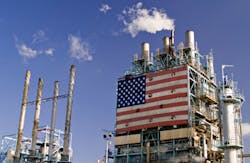US refineries should look for export opportunities amid growing competition
U.S. refiners have to deal with dynamic conditions, changing the industry all the time. The market is becoming more competitive globally, as exports offer higher margins, whereas domestic feedstock is cheap and abundant but not necessarily the right type of product they need. That is why refineries have to keep investing and adapting. This was one of the main conclusions reached by speakers at the U.S. Energy Information Administration's 2014 energy conference, according to the Oil and Gas Journal.
Joanne M. Shore, chief industry analyst at American Fuel & Petrochemical Manufacturers, said that U.S. demand for refined products has remained flat, making export an increasingly appealing option for refiners. However, both feedstock and regulation have posed their own challenges. And while refineries in the Midwest and the Rocky Mountains have had access to ample supplies, this is not the case with refineries in the Gulf Coast, the East Coast and the West Coast, she added.
Meanwhile, the market is also under the influence of Russian competition, as Russia also plans to ramp up exports. Antoine Halff, head of the International Energy Agency's Oil Industry and Markets Division, commented that even though European demand is falling, its refining sector is contracting at an even faster rate, leaving the door open for Russia to increase its exports to the EU. Exports of residual and bunker fuel lead the way for now, but the expansion will most likely affect other products as well, he said.
